Research

SEAC aims to generate and support both discipline-based and interdisciplinary research on Southeast Asia.
SEAC supports research on Southeast Asia by scholars working within and across a range of disciplines in the social sciences, history, and law, in line with the academic resources and strengths of the LSE. SEAC-supported scholarship on Southeast Asia at the LSE extends across the departments and disciplines of Anthropology, Development Studies, Economic History, Economics, Geography and the Environment, Government, International History, and International Relations, and beyond. Through its affiliated academic staff, its support to students, its visiting fellowship schemes, and its seminars, workshops, and other events, SEAC endeavours to cover the full breadth of Southeast Asia, connections and comparisons between Southeast Asia and the rest of the world, and a diversity of issues and perspectives within the region.
Research Projects
SEAC is currently supporting the following research projects:

This project leverages off the existing LSE research project funded by a British Academy (BA) Official Development Assistance Challenge-Oriented research grant, which aims to tackle climate change through nature-based solutions, with a particular focus on the health co-benefits of mangrove preservation in coastal marinescapes in the Philippines.
An improved understanding of the economics of mangroves has the potential to contribute both to addressing the financing challenges for blue carbon, and to taking a more integrated approach to climate change mitigation and adaptation. The proposed research explores the critical role the UK can play in supporting the Philippines to scale up blue finance to support the sustainable management of mangrove restoration within well protected marine protected areas (MPAs).
Through literature review and key informant interviews, we will produce a policy paper for the relevant key stakeholders, including the UK and Philippine governments, development partners and philanthropic foundations, contributing to the LSE Global School of Sustainability (GSoS)’s “sustainable societies” and “nature themes”. The paper will include an assessment of existing examples of blue finance that incorporate innovative financial instruments. It will then develop feasible options for financing strategies for MPAs that have a high probability of mobilising private investors and philanthropic foundations.
As a case study, first we will explore to what extent the Philippines and its largest creditors of external sovereign debt could agree on a debt restructuring/conversion initiative designed to develop a debt-for-ocean swap mechanism for financing MPAs that improves mangroves for sustainable fisheries management and tourism. Restructuring debt can create fiscal space for the Philippines to boost inclusive growth for mangrove livelihoods. We will then examine the possibility of issuing a sovereign blue bond in mangroves. Finally, we will highlight types of income-generating projects linked to mangroves that can improve the sustainable livelihoods of local communities.
Lei 'Alice' Bian (SEAC Associate) is currently Policy Fellow at the LSE’s Global School of Sustainability, seconded from the Grantham Research Institute on Climate Change and the Environment at the London School of Economics and Political Science. She is the principal investigator on this project.

This research project looks at the Spice Islands during the French Revolutionary and Napoleonic Wars, when these islands were governed by the British. It covers the period from the first British capture of Amboyna in 1796 to the handover of the Moluccas to the Dutch in 1816 and the subsequent local uprising, the 1817 Pattimura Rebellion. This is an understudied period in the history of the Dutch East Indies and the history of the Napoleonic wars alike. In the former it was never more than an English sidenote in a Dutch story; in the latter it was never more than a Southeast Asian footnote to European wars. Yet, the British not only captured the Moluccas once but twice, in 1796 and again in 1810, and governed these islands for two decades.
My research will have three foci. The first examines the British expeditions against the Spice Islands. Key questions include why the Moluccas were captured, how they were captured, and where they fit into the larger British strategy. They also include how the British governed the Moluccas and what impact this had on the local population. The second looks at ‘cultural encounters’. Here I want to explore how the British sailors, soldiers, and administrators perceived the Moluccas and the local population and, conversely, how they were seen by the locals. Cultural encounters are also at the heart of the Christian missionary work which was restarted under the British in 1814 with the arrival of Dutch missionary Joseph Kam who had joined the London Missionary Society. The third focus is the 1817 Pattimura rebellion against the Dutch which followed the British departure. Here my core line of enquiry pertains to the role that British governance and policies played in paving the way for this anti-colonial
Professor Kirsten Schulze is a Professor in International History at the London School of Economics. She works on ethno-religious violence, communal and separatist conflicts, as well as militant Islamism in Indonesia. She is the author of Contesting Indonesia: Islamist, Separatist, and Communal Conflict in Indonesia since 1945 (Cornell University Press 2024) as well as numerous articles on local jihad in Ambon and Poso, Indonesian jihadi training camps home and abroad, and how Aceh moved from conflict to peace. Her new research project looks at the Indonesian Spice Islands during the French Revolutionary and Napoleonic Wars.
Past Projects
SEAC has also supported the following research projects:
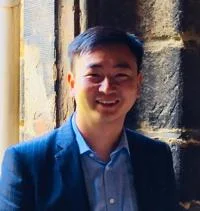
Overlooked Cities aims to reflect and impact the changing landscape of urban studies and geography from the perspective of smaller and more regional cities in the urban South. It critically examines the ways in which cities are uniquely positioned within different urban and knowledge hierarchies.
Funded by the Urban Studies Foundation and supported by SEAC, this Seminar Series interrogates "overlooked cities" or "overlookedness" as a collective critique and elaborates on the praxis of counter-overlooking to provide renewed critical impetus to think about, write about, care about and act on urban lives. Three seminar events will be held in September 2023 in Bandung, Indonesia, in October 2023 in Bloemfontein, South Africa and in March 2024 in Durham, UK.
To prepare for the first event in Bandung in September 2023, the team has held a preparatory meeting in early July with early-career researchers who were selected for the ECR mentoring programme. Together with the three mentors (Prof Hyun Bang Shin, Prof AbdouMaliq Simone and Dr Rita Padawangi), the team talked about the format, expectation and procedure of preparing draft papers. And drop-in sessions will also be hosted in mid-August to further support this writing process and prepare for the in-person meeting in Bandung. Meanwhile, the team also produced and shared guidelines with all conference participants regarding the logistics issues.
Full details can be found here.
Dr Yimin Zhao is Assistant Professor in Urban Planning and Management, School of Public Administration and Policy, Renmin University of China. Dr Zhao is the co-Investigator for the project.
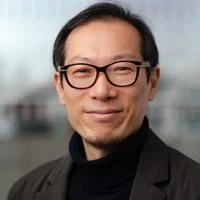
A pioneering and expansive research partnership programme between Chulalongkorn University, the University of Sussex, LSE, and the University of Bristol applied innovative methodology and world-leading practice to solve local and global challenges of flooding and climate change impact. Combining expertise in climate science, physical geography, social science and economics, the partnership team used high-resolution climate modelling to develop flood risk maps, researching how government policies have shaped communities’ responses to flooding and how community knowledge and resilience can be applied to creating better flood management policies for the government and private sector in Thailand. Full information can be found .
Please find a new research output here.
Prof. Hyun Bang Shin, Co-Investigator
Prof. Shin is Professor of Geography and urban Studies in the Department of Geography and Environment. He was Director of SEAC between August 2018 and July 2023.

SEAC launched a desk-based archival research project in June 2020 to compile initial responses to the COVID-19 crises, reflect upon what the crises mean for urbanisation, government, connectivity in Southeast Asia, and contemplate the post-COVID-19 urban futures. More information can be found .
Prof. Hyun Bang Shin, Principal Investigator
Prof Shin is Professor of Geography and Urban Studies in the Department of Geography and Environment. He was Director of SEAC between August 2018-July 2023.

Dr Do Young Oh, Research Officer
Dr Do Young Oh, the project's Research Officer, was based jointly at the Saw Swee Hock Southeast Asia Centre and the LSE Middle East Centre.

Dr Murray Mckenzie, Research Officer
Dr Mckenzie was the project's Research Officer, LSE Saw Swee Hock Southeast Asia Centre.

This project was funded by a British Academy grant for its Tackling the UK's International Challenges programme. The 18-month project examined four large-scale property development projects of Chinese capital, to question the ways in which the urban has been reconfigured by China’s global expansion.
More details on the project can be found .
Prof. Hyun Bang Shin, Principal Investigator
Prof. Shin is Professor of Geography and Urban Studies in the Department of Geography and Environment. He was Director of SEAC between August 2018 and July 2023.

Dr Sin Yee Koh, Co-Investigator
Dr Koh is Senior Lecturer in Global Studies, School of Arts and Social Sciences, Monash University Malaysia
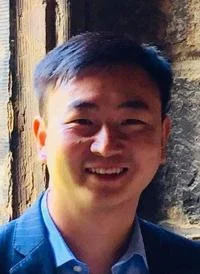
Dr Yimin Zhao, Co-Investigator
Dr Zhao is Assistant Professor in Urban Planning and Management, School of Public Administration and Policy, Renmin University of China.

Prof. Ching Kwan Lee, Project Advisor
Prof. Lee is Professor of Sociology at University of California Los Angeles.
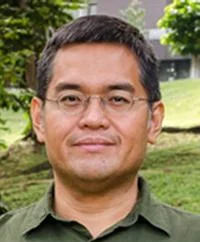
Dr Pow Choon-Piew, Project Advisor
Dr Pow, former Associate Professor in the Department of Geography, National University of Singapore

Dr Mckenzie is Postdoctoral Research Assistant, LSE Saw Swee Hock Southeast Asia Centre.
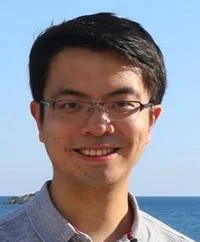
Dr Jin is the former Postdoctoral Research Assistant, LSE Saw Swee Hock Southeast Asia Centre.

SEAC was awarded a research grant from the LSE Middle East Centre's Kuwait Programme, to start a project beginning in September 2019 , which aimed to analyse and compare how Asian cities have risen to become reference points for the development of cities in the Global South. The project examined the experience of building new cities branded as smart cities in Kuwait and the Philippines. More information can be found.
Prof. Hyun Bang Shin, Principal Investigator
Prof Shin is Professor of Geography and Urban Studies in the Department of Geography and Environment. He was Director of SEAC between August 2018-July 2023.

Dr Do Young Oh, Research Officer
Dr Do Young Oh is the project's Research Officer, based jointly at the Saw Swee Hock Southeast Asia Centre and the LSE Middle East Centre.
The purpose of this project wass to analyse UK-Southeast Asia relations, to explain recent policy change, and to offer a critical appraisal, whilst also providing policy advice in the context of Brexit.
A major aspect of the initial research in 2017/18 focused on the question of the UK‘s future partnership arrangement with the Association of Southeast Asian Nations (ASEAN) and possible options for future new trading arrangements.
Publications:
Future Options for the UK-ASEAN Economic Relationship (briefing paper) - PDF
Steering UK-Southeast Asia relations post-Brexit (13 March 2018, East Asia Forum) - link

, Principal Investigator
Dr Jürgen Haacke is an Associate Professor in International Relations in the LSE Department of International Relations as well as a SEAC Associate.

This umbrella project explored the impact of political change in Myanmar. Pursued in collaboration with the LSE Global South Unit as part of its , it consisted of two research strands:
Myanmar foreign policy in the context of the country’s transition
Foreign policy agency in relation to ethnic armed organisations
, Principal Investigator
Dr Jürgen Haacke is an Associate Professor in International Relations in the LSE Department of International Relations as well as a SEAC Associate.